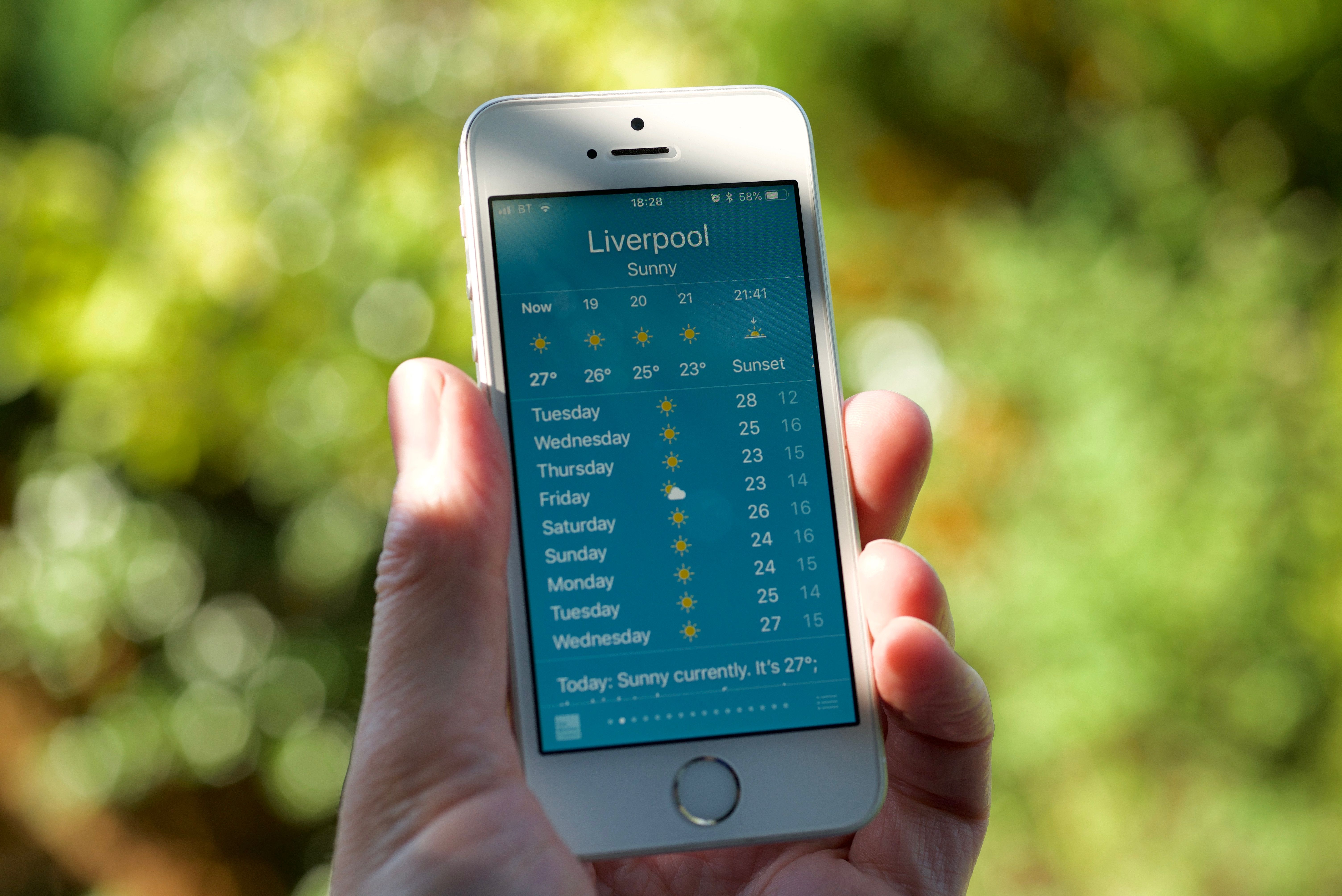Which weather forecast app can we actually believe?
Bournemouth recently had a ‘blunderstorm’ – the BBC’s weather app predicted rain and thunder over the spring bank holiday weekend, yet the weekend came and went without a single drop of rain. This sparked backlash from a tourism manager for the area, saying that people who could have come and enjoyed Bournemouth’s beach stayed away due to the incorrect forecast.
Having an accurate forecast is incredibly important, but it’s tricky for weather forecasters to get this right, leading to different apps telling you different things. Modern forecasting relies on gathering a colossal amount of data on the state of the atmosphere and the Earth’s surface, including temperature, wind conditions and humidity. Any gaps in this data are filled by extrapolation with available observations and previous forecasts, and all this data is fed into supercomputers that are capable of doing “a thousand trillion calculations per second”. As the science used to gather weather data gets more advanced, models become more complex, running multiple times with different starting data to account for variation in the final outcome.
Modern forecasting relies on gathering a colossal amount of data on the state of the atmosphere and the Earth’s surface
A recent project using Japan’s Himawari-8 weather satellite used infrared radiation luminance data for the first time, to model weather patterns in areas under heavy cloud coverage. This system allows meteorologists to determine the height of the top of the clouds, giving them crucial information to help estimate the other key factors.
A Nature study from 2015 found that meteorologists’ ability to predict atmospheric pressures three to 10 days ahead had been improving at a rate of “about one day per decade since 1981”. The Met Office says that current four-day air pressure forecasts are now as accurate as the one-day forecasts from three decades ago.
A recent project using Japan’s Himawari-8 weather satellite used infrared radiation luminance data for the first time, to model weather patterns in areas under heavy cloud coverage
Despite the advances in weather science, there is no such thing as a perfect forecast, as trying to model all the potential outcomes from all the contributing factors wouldn’t be possible. The way we get and use forecasts has been transformed by the digital revolution and the rise of smartphone weather apps, which allow localised predictions and wider time frames. There are thousands of apps out there, and it can be hard to know which to trust.
Studying the forecasts from several leading forecast providers found that the different apps had differing accuracies for particular features – AccuWeather was best for the probability of precipitation, for example, whereas The Weather Channel was best for low-temperature predictions. The BBC app, the most used weather app in the UK, has been accused of being pessimistic in its forecasts, which include hourly percentage chances of rain. The Weather Channel was found to be the most accurate in 2017, with AccuWeather and MeteoGroup following close behind. As for the best app to use, that – like how to act upon forecasts – is up to our own judgement.

Comments